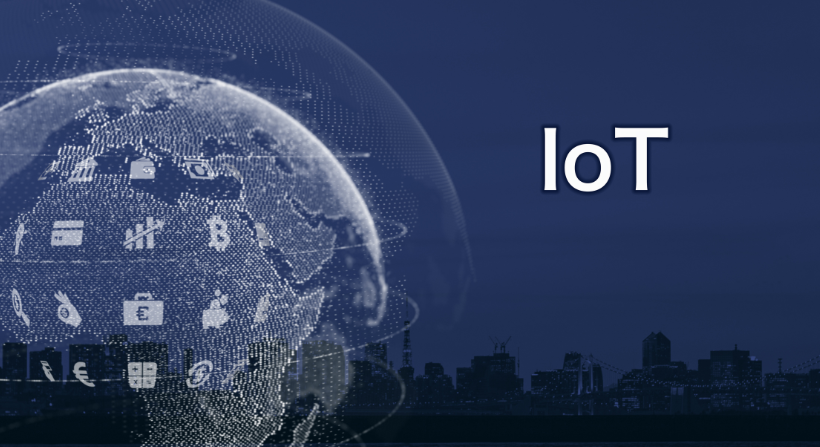The IoT Analytics 2023 report discloses a remarkable 18% global IoT connection surge in 2022, totaling 14.3 billion endpoints. Projections for 2023 anticipate a robust 16% increase, aiming for 16.7 billion connected IoT devices worldwide. Amidst this connectivity surge, the spotlight is on AI in IoT (Artificial Intelligence in the Internet of Things). Companies strategically invest in this symbiotic relationship, recognizing its crucial role in enhancing efficiency and gaining a competitive edge.
As work dynamics change under the influence of interconnected advancements, this article explores the multifaceted ways in which AI augments IoT capabilities, exploring its role and inherent advantages within the expansive world of interconnected devices.
Role of AI in IoT Devices
The fusion of artificial intelligence and the Internet of Things is becoming popular, revealing essential synergies between both technologies.
Here are some key ways AI contributes to the Internet of Things.
1. Data Analytics and Predictions
AI algorithms excel at analyzing vast amounts of data, and IoT generates massive data from devices and sensors. AI in IoT enables real-time data processing to extract meaningful insights, identify patterns, and make predictions.
In healthcare IoT, for instance, AI analyzes patient data from wearables to detect early signs of health issues, offering personalized recommendations. In industrial IoT, AI analyzes sensor data to predict equipment failures, facilitating proactive maintenance.
2. Machine Learning (ML) for Optimization
Machine Learning models leverage specific IoT data to optimize various processes. In agriculture IoT, ML models predict optimal planting times and water system designs based on weather and soil data.
AI, through the analysis of tenant patterns and external atmospheric conditions, enhances ventilation, heating, and cooling systems in smart buildings to reduce energy consumption.
AI in IoT enhances efficiency, improves safety, and opens up new possibilities for innovation across diverse industries.
3. Automation and Control
AI enables autonomous guidance and management in IoT systems. Examples include AI algorithms processing sensor data to make real-time driving decisions in autonomous vehicles and controlling devices like thermostats, lighting, and security systems in smart homes.
This combination of AI and IoT facilitates more efficient and automated decision-making processes, leading to enhanced safety in transportation and improved comfort and energy efficiency in smart homes.
4. Natural Language Processing (NLP)
The capabilities of Natural Language Processing (NLP) in AI can be seamlessly integrated into IoT devices to facilitate voice commands and natural language interaction. Virtual assistants like Alexa, Google Assistant, and Siri use NLP to manage IoT devices and respond to user inquiries.
This integration not only enhances user experience but also enables seamless control and interaction with smart devices. By understanding and interpreting human language, AI-powered IoT devices can perform tasks, answer questions, and provide personalized assistance, revolutionizing day-to-day routines.
5. Security and Anomaly Detection
AI plays a crucial role in enhancing IoT security by identifying suspicious activities and potential threats. It can detect abnormal behaviors within IoT networks or devices, triggering alerts and analyzing patterns in real time to identify security vulnerabilities.
This advanced technology enables proactive measures, ensuring a safer and more robust IoT environment. AI’s continuous learning and adaptive capabilities allow it to stay ahead of emerging threats, providing ongoing data security.
6. Healthcare
AI in IoT has diverse applications in healthcare, offering real-time data for proactive management and early intervention. It facilitates continuous monitoring of patients with chronic diseases, aids in prescription administration by giving reminders, checks potential medication interactions, promotes drug adherence, and prevents adverse events.
Additionally, it reduces waiting times in emergency rooms by streamlining the emergency process and prioritizing patients based on severity using real-time data.
7. Personalization
Artificial Intelligence tailors IoT services and recommendations to individual preferences and behaviors. In e-commerce IoT, AI analyzes customer data to provide personalized product recommendations. In smart theater setups, AI suggests content based on customer viewing habits.
Moreover, AI customizes user experiences by tailoring IoT services to specific needs and preferences, continuously learning and improving from user interactions.
8. Image and Video Analysis
AI’s capabilities extend to processing and analyzing images from medical devices, significantly aiding in diagnostics by identifying anomalies that may be overlooked by the human eye.
AI also examines video streams from security cameras, enhancing the effectiveness of security systems by detecting intrusions or unusual activities.
Advantages of AI in IoT
Here are a portion of the upsides of involving artificial intelligence in IoT:
- Improved Effectiveness: AI in IoT analyzes vast amounts of data collected by these devices, providing valuable insights. This enables organizations to optimize operations, reduce costs, and enhance overall efficiency. For instance, AI can predict equipment failures, allowing maintenance teams to address issues proactively and prevent downtime.
- Enhanced Security: AI contributes to improved security in IoT device implementations. In industrial settings, AI-enabled cameras can identify potential threats and alert workers to take necessary precautions. Similarly, AI algorithms analyze data from vehicle sensors to detect unsafe driving behavior, offering real-time feedback to drivers.
- Predictive maintenance: AI in IoT helps predict when equipment requires maintenance, reducing downtime due to equipment failures and improving efficiency. By analyzing data from IoT sensors, AI algorithms identify patterns indicative of potential equipment issues.
Revolutionizing the Fusion of IoT Device Production and AI Innovation with ZirkelTech
The integration of AI in IoT has revolutionized various fields by enhancing efficiency, security, personalization, and predictive maintenance. AI’s capacity to analyze data from IoT devices and make predictions has significantly improved operations across industries, with further transformational opportunities on the horizon.
In response to this demand, ZirkelTech spearheads application development, offering a myriad of services, including enterprise transformation driven by artificial intelligence.
Our expertise in product engineering and profound industry insights uniquely position us to streamline your business workflows. Explore our versatile AI solutions, delivering swift and transformative results securely, responsibly, and economically through state-of-the-art Enormous Language Models (LLMs) and Generative AI.
Connect with ZirkelTech today to boost your business with the revolutionary brilliance of artificial intelligence!






